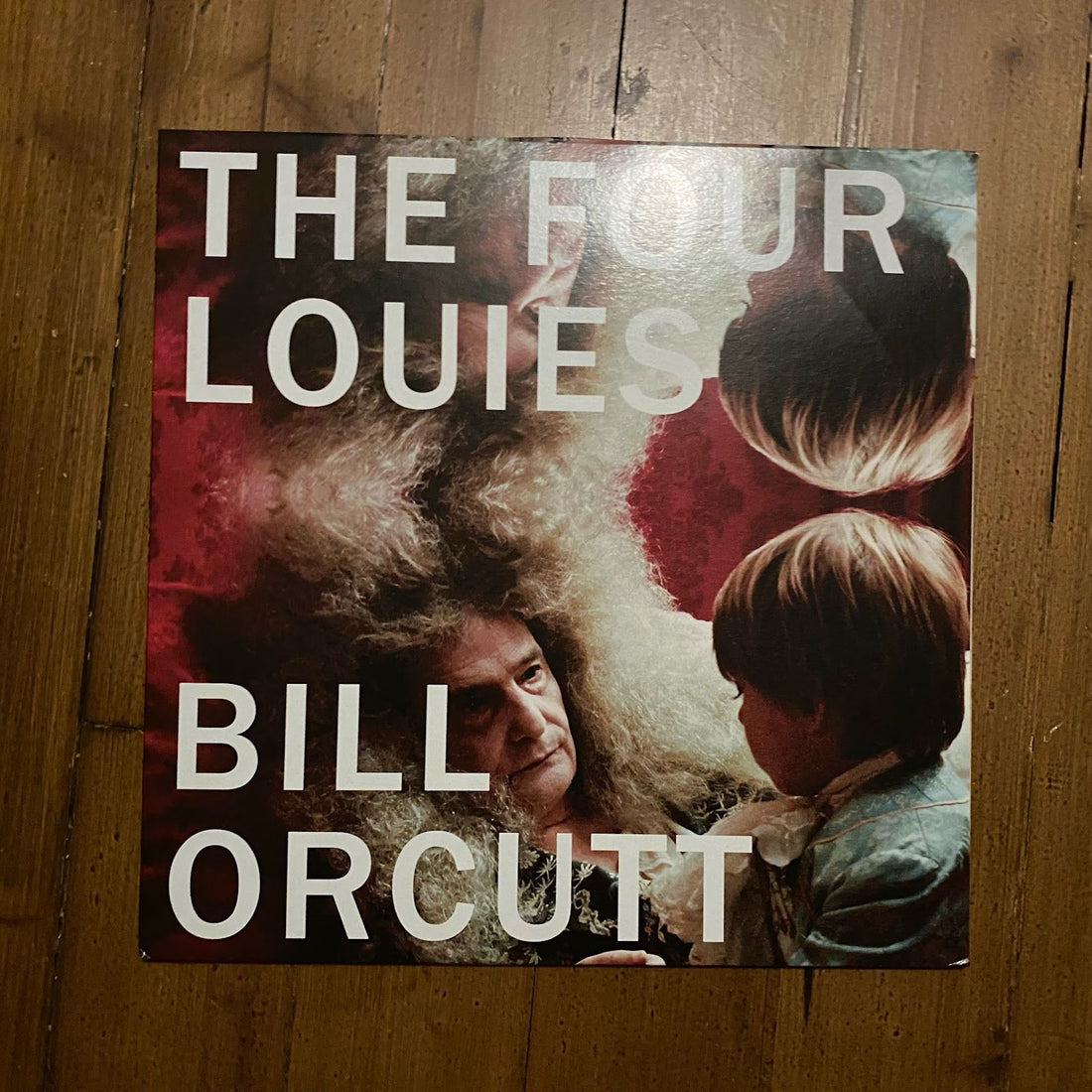
Bill Orcutt - Four Louies LP (Fake Estates)
Share
Bill Orcutt’s Four Louies stands as a fascinating exploration of musical duality and tension between minimalist composition and rock’s raw immediacy. Released in 2024 on Fake Estates label, this LP continues Orcutt’s venture into computer-based music, likely utilizing his open-source software Cracked, which allows for real-time manipulation of live audio inputs. As part of a larger series of albums made with computers, which includes The Anxiety of Symmetry, A Mechanical Joey, and Pure Genius, Four Louies emerges as one of the more accessible works, combining conceptual harshness with recognizable cultural references.
At its core, Four Louies performs a mashup between Steve Reich’s seminal minimalist composition Four Organs and garage rock anthem Louie Louie. Both pieces, despite their stylistic differences, share a repetitive, almost trance-like quality. Reich’s Four Organs (1970), a key work in the minimalist movement, is built around the gradual phasing and stretching of a single chord, creating an immersive, slowly evolving soundscape. By contrast, Louie Louie, popularized by The Kingsmen in 1963, is built on three simple chords played in a relentless loop, embodying the unpolished energy of rock music. These are two vastly different artistic expressions of repetition: Reich’s is brainy and process-oriented, while Louie Louie is rough, uplifting and rebellious. Orcutt's genius in this piece lies in his ability to merge these seemingly disparate idioms into a cohesive, yet chaotic, whole.
In Four Louies, Orcutt manipulates both the repetitive chord structures of Reich and the primal riff of Louie Louie through digital processing, bending and fragmenting them to the point of abstraction. The result is an album that navigates the space between strict order and structure and looping spontaneity, reflecting Orcutt’s interest in the deconstruction of musical forms. This tension, which runs through in some of Orcutt’s work, is heightened by his use of self designed technology.
The technical heart of Four Louies likely lies in Orcutt’s use of Cracked, the open-source live audio software he developed. Cracked enables Orcutt to manipulate audio samples in real time, introducing algorithmic processes that disrupt traditional notions of musical temporality and coherence. Orcutt’s employment of such technology places him within a lineage of experimental composers who have embraced digital tools to expand the possibilities of sound. However, unlike many electronic composers who focus on creating pristine, highly controlled digital environments, Orcutt embraces dirt, noise, and the unpredictable artifacts of digital processing. This is evident in Four Louies, where the disjointed, fractured nature of the sound mirrors the disruptive energy of punk rock while echoing the recursive logic of minimalism.
The integration of Cracked within Four Louies recalls the deconstructionist ethos of mid-20th century avant-garde composers like John Cage, whose compositions sought to dismantle the boundaries between composer, performer, and sound. But where Cage’s use of chance operated within acoustic frameworks, Orcutt extends these experiments into the digital realm.
While Four Louies stands as part of Orcutt’s series of computer-based albums, it is arguably the most accessible. Other works in this series, such as A Mechanical Joey (2021), which loops Joey Ramone’s iconic “1-2-3-4-5-6” count-in, or Pure Genius (2020), which layers fragments of various sound sources into chaotic sonic tapestries, veer toward more abrasive, conceptually opaque territory. In contrast, Four Louies draws on widely recognizable musical tropes, lending the album an immediate appeal despite its experimental underpinnings.
The cult status that Four Louies has already achieved is likely due to this balance of familiarity and disruption. By invoking Louie Louie, a song that has become a cultural signifier of youthful rebellion, and Four Organs, a cornerstone of minimalism, Orcutt taps into two powerful musical traditions. His digital manipulations of these works deconstruct and recombine them in a way that reveals new possibilities within both forms, transforming their simplicity into auditory experience that rewards repeated listening.
In conclusion, Four Louies stands as a significant entry in Orcutt’s output, blending conceptual depth with accessible reference material. Through his innovative use of self-made digital tools, Orcutt continues to push the boundaries of experimental music, creating soundscapes that are as stimulating as they are engaging.
